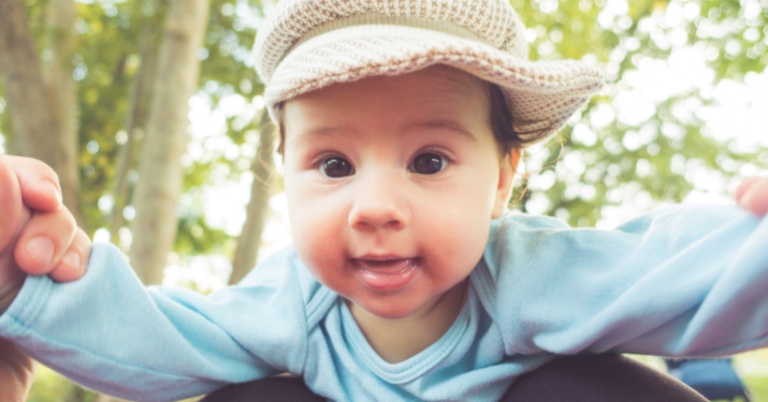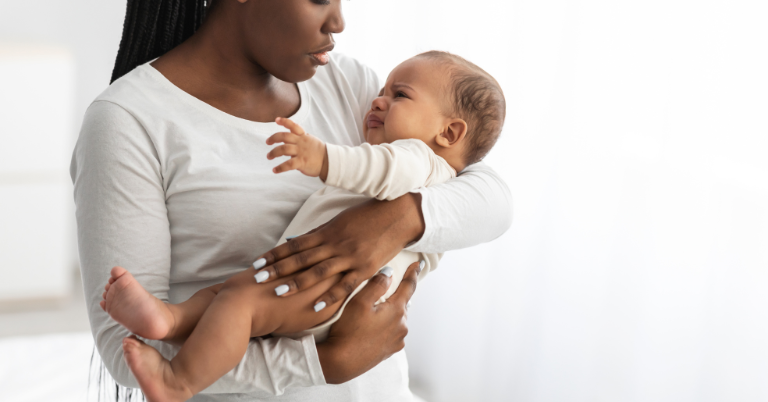Introduction: What to Expect When Flying with a Baby

Flying with a baby can be an exciting experience for new parents, but it can also be quite overwhelming. It's essential to be well-prepared to make the journey as stress-free as possible for both you and your little one. In this comprehensive guide, we will cover all the tips and tricks you need to know for air travel with a baby. From preparation tips before the flight to onboard tips during the flight and post-flight tips to help your baby recover from jet lag, we've got you covered.
Preparation Tips Before the Flight
Before flying with a baby, there are several things you need to take into account to make the experience as smooth as possible. Firstly, make sure you book your flight in advance and notify the airline that you'll be traveling with a baby. This allows them to assign you a suitable seat and arrange for any necessary assistance.
When packing for your baby, you'll want to bring a diaper bag with all the essentials such as diapers, wipes, changing pad, extra clothes, and blankets. If your baby is still bottle-fed, pack enough formula and bottles to last throughout the journey, along with some snacks if your baby has started on solids. Consider packing a few favorite toys or books to keep your little one entertained during the flight.
Another important consideration is the stroller. While you may not be able to bring a full-size stroller on board, many airlines allow you to bring a smaller, collapsible stroller that can be stored in the overhead bin or checked at the gate. Be sure to check with your airline beforehand to see what their policy is regarding strollers.
Onboard Tips During the Flight
Once you've boarded the plane, and flying with a baby, there are several tips you can follow to ensure that your baby is comfortable and entertained during the flight. First and foremost, make sure your baby is fed and comfortable before takeoff to help them sleep during the flight. If your baby is bottle-fed, bring enough formula and bottles to last the duration of the flight.
It's also important to keep your baby entertained during the flight. Bring along some favorite toys, books, or coloring activities to keep your little one occupied. If your baby is old enough, you can even bring along an iPad or other electronic device with baby-friendly games and videos.
When it comes to diaper changes, most planes have changing tables in the bathrooms, but they can be quite cramped. Consider changing your baby's diaper before boarding and bringing along a few extra diapers and wipes in your diaper bag.
Tips for Dealing with Crying Babies Onboard

One of the biggest concerns for parents when flying with a baby is the potential for their little one to cry and disturb other passengers. While it's impossible to prevent a baby from crying altogether, there are some tips you can follow to help soothe them and minimize the disruption.
Bringing along familiar items from home, like a favorite toy or blanket, can help create a calming atmosphere. Interactive activities like singing songs, playing games, or even just talking to your baby can also help distract them and keep them calm.
If your baby does start crying, don't panic. It's normal for babies to cry, and most passengers will understand. Consider taking your baby for a walk up and down the aisle to soothe them, or use soothing techniques such as swaddling or rocking to help calm them down.
Post-Flight Tips to Help You and Your Baby Recover from Jet Lag

Flying with a baby has another problem. Jet lag. Jet lag is a common problem for travelers, especially when crossing multiple time zones. It can be especially difficult for babies and toddlers who are not used to the changing time zones and have difficulty adjusting to their new environment. Fortunately, there are some post-flight tips that parents can use to help their little ones recover from jet lag more quickly and easily. These tips include:
- Get plenty of rest: When you arrive at your destination, make sure you and your baby get plenty of rest. Take a nap if you need to and encourage your baby to do the same. The more rest you get, the easier it will be for you and your baby to adjust to the new time zone.
- Eat healthy meals and snacks throughout the day: Eating a healthy and balanced diet can help you and your baby recover from jet lag more quickly. Make sure to eat plenty of fruits, vegetables, whole grains, and lean proteins, and avoid sugary and processed foods. Also, try to eat at regular intervals to help your body adjust to the new time zone.
- Get plenty of exercise: Exercise is a great way to help your body adjust to the new time zone. Try to get some fresh air and take a walk outside. This can also help you and your baby feel more energized and alert.
- Avoid caffeine or sugary drinks: Caffeine and sugary drinks can disrupt your sleep patterns and make it harder to adjust to the new time zone. Try to avoid them in the hours leading up to bedtime.
- Stay hydrated: Drinking plenty of water and staying hydrated can help you and your baby feel more alert and energized. Make sure to drink plenty of fluids throughout the day, especially during and after the flight.
By following these simple post-flight tips, parents can help their babies or toddlers adjust more quickly to the new time zone while also ensuring they get enough rest and nutrition during the journey.
Conclusion
Flying with a baby can be a stressful experience, but with the right preparation and knowledge, air travel with a baby can be an enjoyable and stress-free experience. From booking your flight to packing the right items for your infant, this guide has provided all the tips you need to make your journey as smooth as possible. By preparing ahead of time, bringing along necessary items for your baby, keeping them entertained onboard, and taking care of yourselves after the flight, you can ensure a safe and comfortable journey for both you and your little one. With these tips in mind, you can take the stress out of air travel with a baby and focus on enjoying your journey to its fullest.

